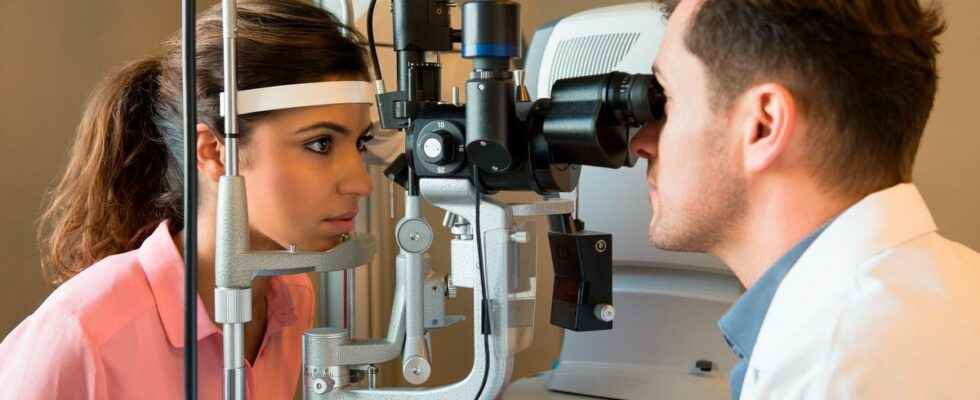Published ,
Reading 2 mins.
According to a study published in the journal Jama Ophtalmologie, the coronavirus could lead to serious vascular occlusions of the retina. Dr. Catherine Abou-Ganem, eye surgeon and member of the Doctissimo expert committee, provides an update on this new symptom.
More than two years into the pandemic, the coronavirus continues to surprise experts. Scientists from the University of Michigan have indeed discovered new sequelae of Covid-19: vascular occlusions of the retina, potentially serious and irreversible.
Covid-19 and eye pathologies: what is the link?
In a detailed report published on April 14, a team of researchers from the University of Michigan identified an increase in two types of eye pathologies following a Covid-19 infection:
- Central retinal artery occlusion (CRAO) is an eye emergency. It usually causes severe, sudden, painless loss of vision. The authors of the study observed a 29.9% increase in this vascular accident over the period of two to 26 weeks after contamination with the coronavirus compared to this same period before diagnosis.
- Retinal vein occlusion refers to a sudden circulatory disorder in a vein. It can be the central retinal vein (which represents an emergency) or one of its branches. In this case, the increase is 47% over this same period, oscillating between 2 and 26 weeks compared to the same period without Covid-19 contamination. According to scientists, the dramatic increase in these retinal vein occlusions suggests that the coronavirus affects veins more severely than arteries.
“Eye stroke”: more or less serious consequences
“Eye strokes”, generally caused by an embolism (obstruction of the retina by a blood clot or a fatty deposit), need to be taken care of quickly.
“The AVC of the eye is a severe accident and very often irreversible. You have to react in the hours that follow because a non-vascularized eye can lead to sudden blindness.”warns Dr. Catherine Abou-Ganem.
However, the damage caused by these ocular pathologies remains extremely variable.
“Arterial occlusion leads to sudden and almost irreversible blindness. On the other hand, venous occlusion is more or less serious: it all depends on the vein affected, whether it is the central vein or one of its branches.says Dr Abou-Ganem.
Thus, during an occlusion of a venous branch, it happens that the patient does not realize the ocular incident. Also, he usually recovers his vision fairly quickly.
Consult a GP online
“Eye stroke”: a rather rare phenomenon
Although many people with these eye disorders regain a certain level of vision, no technique currently allows them to regain full use of an affected eye (following blindness).
Fortunately, “the AVC of the eye remains a very rare phenomenon, even episodic”, recalls the ophthalmologist. In the event of a sudden drop in vision, consult an ophthalmologist within a few hours.
